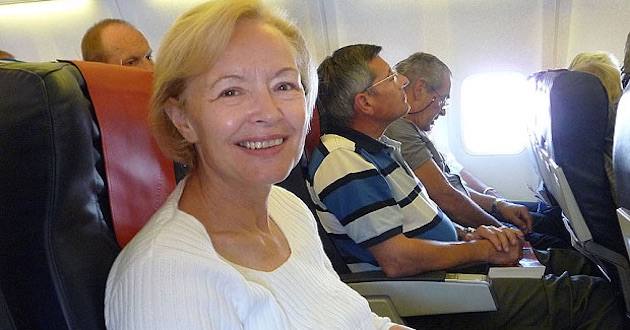Should euthanasia be given to those who are depressed?

The practice of euthanasia is growing around the world, even in the United States. But some are wondering if the practice has moved on to the “slippery slope” of reasons now being given for providing it.
In one landmark case, the European Court of Human Rights has agreed this month to take on the legal case of a man who objects to the fact that his mother was euthanized in 2012 for depression.
The ECHR, based in Strasbourg, France, will consider the case brought forward by Belgium resident Tom Mortier.
According to Mortier, his mother — Godelieva De Troyer — was 64 years old when she was given a lethal injection by a doctor simply because she couldn’t handle her depression. Mortier maintains that doctors and hospital staff didn’t provide notice to him or his siblings until a day after their mother had died.

Alliance Defending Freedom International, which has filed an application to represent Mortier, explains that Mortier’s case is eligible to be heard by the continent’s top human rights court because Belgian authorities have refused to pursue his case.
According to Mortier, his mother had mental health issues and dealt with depression throughout much of her adult life.
Mortier says her depression caused his relationship to be strained and, upon attempting to contact her one day, learned his mother had been euthanized.
“International law has never established a so-called ‘right to die.’ On the contrary, it solidly affirms the right to life — particularly for the most vulnerable among us,” ADF International Director of European Advocacy Robert Clarke, who is handling Mortier’s case, said in a statement. “We welcome the decision of the court to hear this precedent-setting case, the sad facts of which expose the lie that euthanasia is good for society.”
The appeal to the European Court of Human Rights represents the son’s only chance to seek justice for the loss of his mother, according to ADF.
The plaintiff alleges that when De Troyer’s doctor of 20 years refused to approve her euthanasia request in September 2011, she sought the help of other physicians.
One of those physicians was Dr. Wim Distelmans, who coincidentally co-chairs Belgium’s euthanasia review commission.
According to a court statement, Mortier alleges that his mother donated the equivalent of $2,860 to a foundation that Distelmans co-founded called the Life End Information Forum before her euthanasia request was carried out.
“The donation gives rise to an apparent conflict of interest,” ADF argued. “No one contacted Mortier before his mother’s death even though, Mortier says, her depression was not only largely the result of a break-up with a man, but also due to her feelings of distance from her family.”
Psychiatrist Lieve Thienpont was ultimately the one responsible for authorizing De Troyer’s euthanasia request.
Theinpont has been plagued by previous concerns that she is too quick to approve euthanasia for mentally ill patients. Theinpont and two other doctors were investigated last year on claims that they were involved in the euthanization of a woman named Tine Nys, who was diagnosed with Asperger’s syndrome, in 2010.
Nys’ family contends, however, that she wasn’t on the autistic spectrum but just suffering “over a recent breakup with her boyfriend.”
According to the Associated Press, some experts think Theinpont may have been involved in as many as one-third of Belgian euthanasia cases approved for psychiatric reasons.
Religious leaders, such as those with the Roman Catholic Church, have contended that Belgium’s euthanasia law is being abused and that patients are being killed without proper legal checks in place.
Supporters of Mortier’s case believe its impact could span throughout Europe as euthanasia is also legal in countries like the Netherlands and Luxembourg.
“The slippery slope is on full public display in Belgium, and we see the tragic consequences in this case,” ADF International Executive Director Paul Coleman said in a statement. “According to the most recent government report, more than six people per day are killed in this way, and that may yet be the tip of the iceberg. The figures expose the truth that, once these laws are passed, the impact of euthanasia cannot be controlled.”
Coleman stated that Belgium is on a trajectory that “implicitly tells its most vulnerable that their lives are not worth living.”
Another case of a patient being euthanized for mental health reasons is a 41-year-old man in the Netherlands who was euthanized because he was an alcoholic who suffered from depression and anxiety.
Reports indicate that over 10,000 people have been euthanized in Belgium in the 15 years since the practice became legal in 2002. Most of those cases involve a physical illness, rather than mental. Only one case was previously referred to prosecutors; that case was later dropped.
–CBNews







